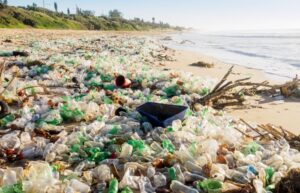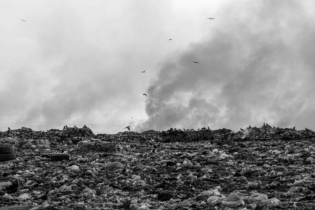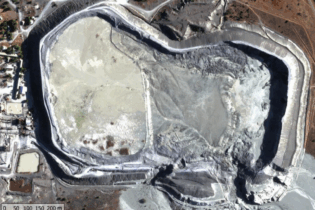SA’s marine life is drowning in life-threatening plastic waste. As the largest producer of plastic waste in Africa, South Africa (SA) needs to lead the way in reducing the impact of plastic waste on the ocean’s ecosystem.
Accounting for over 2% of the world’s ocean pollution, SA generates an astonishing two million tons of plastic waste every year. Less than 5% of this waste is recycled while the rest pollutes our streets, landfills, water systems, and our natural environment including the ocean. In recognition of World Ocean Day, an annual day established by the United Nations (UN) to raise awareness of the importance of our oceans and the need to protect them, Fishways announced the launch of its Clean Up Mzansi, Clean Today, Fresh Tomorrow Corporate Social Investment (CSI) initiative. “The takeaway industry has a critical role to play in protecting the oceans and the environment. Takeaway restaurants are a major contributor to plastic waste, especially due to the use of disposable packaging materials such as plastic cups, straws, and cutlery. These materials often end up in the ocean, remaining there for hundreds of years and threatening marine life,” says Sindi Myeza, Marketing Manager for Fishaways. The launch of this initiative is part of Fishaways’ ongoing sustainability commitment and aims to galvanise staff and SA at large to better protect our oceans, marine life, and the environment at large. Fishaways is furthering this impact by transitioning to 100% recyclable, biodegradable, and compostable packaging by the end of 2023. Customers will also be pleased to know that plastic cutlery will be phased out of all Fishaways stores in favor of an eco-friendlier solution. To kickstart the Clean Up Mzansi initiative, Fishaways held an official clean-up at Table Bay Beach in the Western Cape ahead of World Oceans Day. The clean-up saw Fishaways franchisees, staff, volunteers, and customers come together to pick up and dispose of litter and plastics on the beach and coastal area. “Our first clean-up was encouraging and saw South Africans join Fishaways to make a difference and preserve our oceans. We are excited to grow this initiative into a force for positive change in the environment, working to keep more of our beaches and coastlines clean around the country,” says Myeza.South Africa’s global responsibility toward marine pollution reduction
Rivers carry 80% of the pollution that normally ends up in the ocean after being carried from consumers into the streets, clogging sanitation, and drainage systems. Minister of Forestry and Fisheries, Barbara Creecy recently highlighted the impact of South Africa’s waste production on the oceans, warning that plastic will soon significantly eradicate and replace marine life in the ocean. This is a tragedy we can and should work diligently to avoid. Single-use plastic packaging causes an enormous strain on the environment, especially in our oceans, forestry and fisheries minister Barbara Creecy has warned. The WWF predicts that the amount of plastic in the ocean is expected to double in the next 15 years, and by 2050 there could be more plastic than fish in the sea (by weight). While many people think that discarded plastic will disintegrate over time, plastic never completely disappears, it disintegrates into smaller pieces which are still just as harmful. Every piece of plastic can spend decades in the ocean seriously endangering marine life as well as the overall marine ecosystem. Compared to other African countries, South Africa has a relatively developed waste management system, which means that the country produces more plastic waste but also has a higher potential to manage its waste effectively. However, plastic pollution remains a significant problem, and it is important for companies in the takeaway industry to acknowledge and address their role in this issue. “It is crucial we all take responsibility and implement measures to reduce plastic waste and protect the oceans. Our Clean Up Mzansi initiative and switching to eco-friendly packaging are just a small way we can make a difference in minimising plastic pollution and improving the health of South Africa’s marine life,” concludes Myeza. To participate in the Clean Up Mzansi initiative follow the Fishways social media channels or visit www.fishaways.co.za for updates.






